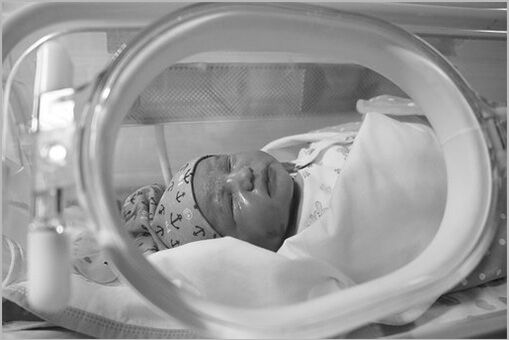What Is premature birth?
Premature birth occurs when a baby is born before 37 completed weeks of gestation. This experience is deeply emotional and often overwhelming for parents. Instead of a period of joyful anticipation, many families are suddenly faced with worry, fear, and uncertainty.
Birth can occur slightly early (for example, after 36 weeks), or significantly prematurely (as early as 26 weeks). The earlier the birth, the more likely the baby will face health complications and require specialized medical care.
Emotional support during hospital stay
Parents often feel helpless when their newborn is placed in a neonatal intensive care unit (NICU). Active involvement in their baby’s care, when possible, can be beneficial. Feeding, touching, and talking to the baby supports bonding and emotional regulation. Organizations such as Palčići (Thumblings) in Croatia offer community support and share helpful resources.
Leaving the hospital: What comes next?
When a baby is ready to go home, parents receive detailed instructions on care routines, future check-ups, and vaccinations. It is essential to inform the local health nurse about the baby’s arrival. The nurse can offer continued support, guidance, and reassurance.
The child should be registered with a pediatrician immediately. Parents should provide the baby’s medical history and arrange for the first pediatric examination. Early and open communication with healthcare providers ensures the baby receives continuous care.
Monitoring and development
In the first days at home, parents must observe how their baby adapts. Feeding habits, sleep, crying, and weight gain are all indicators of progress. Parents may feel overwhelmed by fears and past trauma. Family members, nurses, and pediatricians can play an important role in providing encouragement.
Babies born very prematurely are typically included in multidisciplinary programs. These involve neonatologists, neuro-pediatricians, physiotherapists, and, later, psychologists and speech therapists. Regular follow-ups and development exercises support healthy growth.
Skincare and hygiene tips
Parents are advised to keep skin care minimal. During the early months, water alone is usually enough for bathing. Creams and oils should be avoided unless necessary. If used, they must be free of fragrances, dyes, and preservatives. Olive oil, though natural, is not recommended for newborn skin due to oleic acid, which can damage the skin barrier.
Bathing every day is not needed unless in hot weather. During heat waves, multiple baths per day can provide relief.
Preventing infections
Handwashing before touching the baby is crucial. The baby’s environment should be clean and well-ventilated. Avoid crowded areas such as shopping centers. If there is a preschool-aged sibling in the home, consider temporarily pausing preschool attendance to reduce the risk of transmitting infections.
Vaccination and protection
Vaccinations for premature babies follow the same schedule as for full-term babies. Some premature infants may require additional protection. Babies born before 32 weeks may benefit from monthly injections to prevent respiratory syncytial virus (RSV) during the winter season.
Consult your pediatrician about optional vaccines, such as for rotavirus and pneumococcus. These vaccines are often offered by the Croatian Institute of Public Health, depending on specific indications.
Emotional bonding and recovery
Over time, parents gain confidence, and communication with their baby improves. A sense of pride and emotional fulfillment develops as they actively support their baby’s recovery and growth. This connection is essential for the child’s emotional and cognitive development.
The earliest interactions shape a child’s trust and perception of the world. When parents feel empowered and supported, this emotional strength is transferred to the baby. Each act of care contributes to long-term well-being.
You are not alone
Premature birth may seem overwhelming at first. But with proper medical care, emotional support, and access to information, parents can become the greatest advocates for their child’s health. Trust your instincts, stay informed, and lean on professionals and community networks.
Every small step counts in nurturing a healthy and happy future for your baby.
Download LittleDot – Your Family’s Health Companion!
Easily manage your family’s health with our all-in-one app. Track medical records, consult with doctors, and stay ahead of every health need. Convenient, reliable, and always within reach. Download now and try it for free!
